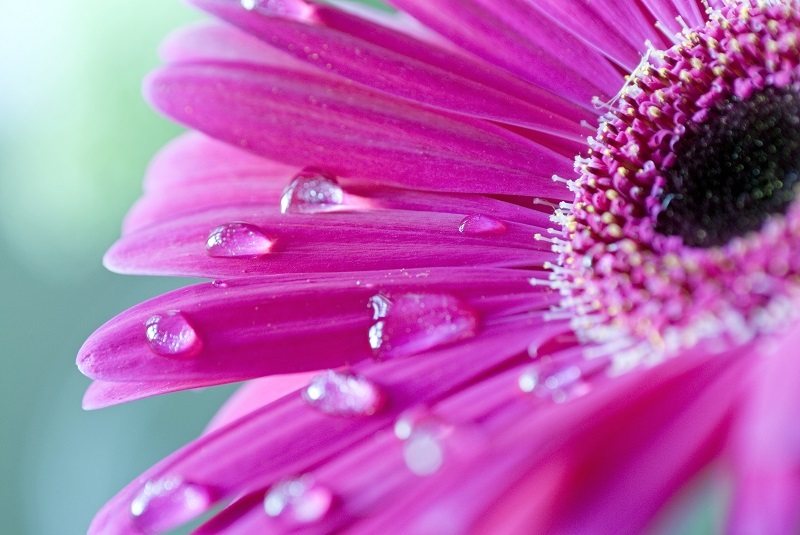How Incorporating Flowers Into Your Routine Can Improve Your Quality of Life
Flowers have enchanted humans for centuries, embellishing our homes, gardens, and ceremonies with vibrant color and compelling fragrance. But did you know that incorporating flowers into your daily routine can go far beyond aesthetics? From boosting mood and reducing stress to improving air quality, flowers offer a wealth of benefits that can enhance your quality of life in significant ways. In this comprehensive article, we'll uncover how making flowers part of your everyday life can lead to remarkable improvements in physical, emotional, and mental well-being.
Why Flowers Matter in Everyday Life
Flowers have always held a special place in human culture. But beyond their beauty, flowers are powerful agents of wellness. They have been used in traditional remedies, spiritual practices, and as potent symbols of love, gratitude, and celebration. In recent years, scientific research has revealed even more reasons why having flowers in your daily environment can make you happier and healthier.
- Natural mood enhancers: Certain flowers and plants are proven to lift spirits and reduce depression or anxiety.
- Air purifiers: Many species filter toxins indoors, improving air quality and respiratory health.
- Sensory stimulation: Their colors, textures, and fragrances provide soothing sensory experiences.
- Connectedness to nature: Flowers reinforce our bond with the outdoors, which is key for mental well-being.

The Science Behind Flowers and Wellbeing
The Psychological Effects of Flowers on Mood
Numerous studies demonstrate the positive psychological impact of flowers. According to research published by Rutgers University, people who receive flowers reported increased happiness and life satisfaction for days after the flowers were presented. Even simply seeing flowers in the morning can inspire feelings of optimism, energy, and relaxation.
Physical Health Benefits of Having Flowers Around
It's not all in your head--the health benefits of flowers can be measured physically too. Studies indicate that exposure to flowers in hospital rooms speeds up recovery, lowering blood pressure, heart rate, and levels of perceived pain and anxiety among patients. In workspaces, flowers have been shown to increase productivity, accuracy, and cognitive function.
Flowers and Improved Air Quality
Another critical way flowers improve your lifestyle is by acting as natural air filters. Plants like peace lilies, chrysanthemums, and gerbera daisies efficiently remove toxins such as benzene, formaldehyde, and trichloroethylene from indoor air. Cleaner air means fewer headaches, better sleep, and enhanced overall health--especially for allergy sufferers.
Simple Ways to Add Flowers to Your Routine
You don't have to be a botanist or spend a fortune to enjoy the advantages of flowers in your daily life. Here are easy and creative ways to include flowers in your everyday routine:
- Fresh bouquets: Treat yourself to a weekly bouquet or pick seasonal wildflowers to decorate your home or office.
- Flower gardens: Dedicate a small space in your yard or balcony to grow your favorite blossoms.
- Floral teas and infusions: Savor the soothing properties of chamomile, rose, lavender, or hibiscus herbal teas.
- Pressed flower crafts: Create bookmarks, wall art, and greeting cards with pressed or dried flowers.
- Bath and self-care rituals: Add rose petals or lavender buds to baths and body oils for a touch of luxury.
- Portable flowers: Carry blossoms with you--in your bag, on your desk, or as accessories--to remind yourself to pause and appreciate beauty.
How Flowers Improve Mental and Emotional Health
Reducing Stress and Anxiety
Living in a hectic, fast-paced world, stress is almost unavoidable. However, studies show that flowers have a calming effect, helping to reduce anxiety and induce relaxation. The act of arranging flowers or simply observing them can serve as a mini-meditation, helping you to center yourself and breathe more deeply.
Promoting Mindfulness and Creativity
The unique shapes, colors, and scents of flowers stimulate creativity and encourage mindfulness. Arranging flowers, gardening, or engaging in floral crafts all require you to be present in the moment, focusing attention on natural beauty. This practice cultivates gratitude and reduces negative thinking, making it easier to find joy in small pleasures.
Enhancing Relationships Through Flowers
Giving (or receiving) flowers has a profound effect on relationships. Presenting flowers demonstrates care, gratitude, and affection, strengthening bonds with friends, family, and partners. Flowers are powerful tools for communication--sometimes saying I love you or I'm thinking of you more eloquently than words ever could.
Flowers and Physical Health: More Than Just Good Looks
Improving Sleep Quality
Certain flowers, such as jasmine and lavender, release scents known to improve sleep quality by relaxing the nervous system and lowering heart rate. Keeping these fragrant flowers in your bedroom, or using their essential oils, can contribute to deeper, more restorative rest.
Boosting Immunity Through Cleaner Air
As mentioned earlier, adding air-purifying plants and flowers to your daily setting can remove toxins and reduce airborne pathogens. This results in a cleaner environment, which supports a stronger immune system and fewer respiratory issues, especially for those with allergies or asthma.
Supporting Physical Activity and Outdoor Living
Having a flower garden motivates you to spend more time outdoors and engage in mild physical activity, such as digging, planting, and watering. This connection with the earth has measurable physical and mental benefits, including improved mood, better vitamin D levels, and enhanced cardiovascular health.
Using Flowers to Create a Positive Environment
Brightening Your Home and Workspace
One of the simplest ways to elevate your quality of life is by having fresh flowers in your home or office. Not only do they make spaces more inviting, but they also energize atmospheres, increase feelings of comfort, and inspire creativity.
- Entryways: Place a vase of cheerful blooms to greet you and your guests as soon as you walk in.
- Desks and workspaces: Keep a small pot of flowers nearby to reduce tension during busy workdays.
- Dining areas: Add a centerpiece of seasonal flowers to elevate mealtimes and encourage mindful eating.
Creating Rituals with Flowers
Flowers can become a core part of your self-care rituals. From morning meditations surrounded by fresh petals to winding down at night with calming floral scents, integrating blooms into your routine can enhance feelings of peace and wellness.
Choosing the Right Flowers for Your Lifestyle
Not all flowers are created equal when it comes to their impact on environment and wellbeing. Here are some popular choices that carry proven benefits:
- Lavender: Renowned for its calming aroma; eases anxiety and supports sleep.
- Jasmine: Elevates mood and soothes nerves, making it ideal for bedrooms or relaxation spaces.
- Chrysanthemums: Exceptional air purifiers; boost happiness and brighten interiors.
- Peace lilies: Remove toxins such as formaldehyde and benzene; low maintenance and striking appearance.
- Sunflowers, daisies, and tulips: Their bright colors inspire optimism and encourage cheerfulness.
Pro Tip: Sensitivities differ; if you have allergies, choose hypoallergenic varieties such as orchids, begonias, or succulents with flowers.
Flowers as Natural Reminders to Embrace the Present
In our fast-paced lives, flowers serve as gentle reminders to slow down, be present, and savor life's fleeting moments. Their ephemeral beauty teaches us about impermanence and gratitude. Observing a blossom open or fade can encourage mindfulness and reframe our perspectives on change and growth.
Flowers for Every Season and Lifestyle
You might think flowers are only for spring or summer, but with careful selection, you can enjoy blooms year-round:
- Winter: Indoor varieties like amaryllis, cyclamens, and African violets bring color to colder months.
- Spring and Summer: Take advantage of outdoor planting for tulips, daffodils, roses, and hydrangeas.
- Autumn: Mums, asters, and pansies thrive and provide cheer as the weather cools.
Even in urban apartments, modern advances allow you to grow flowers hydroponically or in compact pots, making it easy to bring floral benefits into any lifestyle.

Making Flowers a Habit: Practical Tips and Ideas
Start Small and Build Consistency
If you're new to incorporating flowers into your daily routine, begin with weekly bouquets or a single potted plant. Gradually, as you see and feel the benefits, expand your collection or experiment with home gardening and flower-based crafts.
Involve Family and Friends
Get your loved ones involved! Share in flower arranging, host floral tea parties, or create DIY flower projects for seasonal festivities. Flowers build connections not just with nature, but with each other.
Use Technology for Inspiration
Follow social media pages and YouTube channels that showcase floral arrangements, gardening tips, and creative uses for flowers. There's an entire community dedicated to flowers and personal wellness to keep you motivated and inspired.
The Lasting Impact of Flowers on Quality of Life
Incorporating flowers into your routine is an accessible, enjoyable habit with long-lasting benefits for your physical, mental, and emotional health. From boosting your mood and lowering stress to improving your environment's air quality, flowers are nature's gift for a more vibrant, balanced, and joyful life.
Summary: The Advantages of Making Flowers Part of Everyday Living
- Improved mood and emotional balance
- Reduced stress, anxiety, and feelings of depression
- Enhanced air quality and better physical health
- Boosted creativity and mindfulness
- Stronger social connections through gift-giving and shared activities
- Greater appreciation for nature and the present moment
Ready to experience a better quality of life? Start small--bring home a single bouquet or plant a flower in your garden. Let the power of nature bloom in your home, and watch as your mood, creativity, and wellbeing flourish right alongside your flowers.
Embrace the transformative power of flowers and witness your quality of life improve--one blossom at a time.

